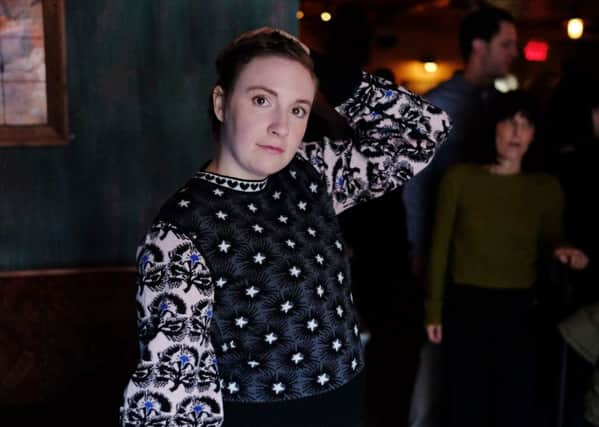Jane Bradley: Getting creative with the real world


It was a lovely offer and one for which I was very grateful. The only catch was that, after dinner, they read out the work they had written that week. It was generally written in the genre of creative non-fiction: a dramatised account of their real-life experiences, penned using literary styles and techniques.
Some of it was good. Much of it was excruciating. There was one girl whose weekly oeuvre detailed her intimate fumblings – sometimes with someone else, sometimes alone. We had to sit with straight faces and listen to all of this over our bowls of noodles scattered with nutritional yeast: she was expressing herself, after all. As far as I know, she’s never been shortlisted for the Booker Prize in the intervening years.
Advertisement
Hide AdAdvertisement
Hide AdCreative non-fiction has always existed, of course – we just didn’t call it that.
Biographies are creative non-fiction. Travel writing is creative non-fiction. Books by people like Girls star Lena Dunham who write “essays” about their innermost thoughts and opinions: creative non-fiction. It has its place.
Indeed, there are some wonderful examples of the genre. This column is one, obviously.
But suddenly, creative non-fiction is everywhere. It is, quite terrifyingly, infiltrating every social media post, every message, every opinion expressed in words.
My least favourite spin off is the “open letter”: A letter to ... “my ex; the woman I shouted at in the supermarket queue; Theresa May”. This type of thing appears on Facebook and blogs, in national newspapers and on websites.
They are serious, emotional, deep. They are not written in everyday parlance, they are crafted for dramatic effect. This is creative non- fiction at its worst.
What I fear is that it is going to reach everyday speech soon. People are going to start talking in formulaic sentences, characterised by dramatic, over-descriptive repetition.
We’re no longer going to tell someone we’ve been to the shops, we’re going to recount how we “entered the retail emporium, our eyes filled with wonder as the sights and sounds assaulted our senses”.
Advertisement
Hide AdAdvertisement
Hide AdEven when updating social media status, people do not merely entertain their friends with a funny story about their lives as they once would – they pen a tale in such a way as to attract comments by readers (aka their friends) that their carefully crafted anecdotes are “written beautifully”.
They don’t jot a post about something that happened as they were leaving the house this morning, they say it occurred as they “exited their home”. They speak to their children in these open letters in ways they would never do in person, treacley epithets of “my darling” and “my sweet girl” peppering the prose. In short, everyone writes as if the world is reading. They are all writers.
When I worked at a local evening paper many years ago, one of my colleagues was overheard grandly describing himself as “a writer”. Oh, how we laughed. He wasn’t a writer, he was a hack. An ordinary, common-or-garden hack. None of us were writers, we told him, cruelly crushing his creative pretensions. We were mere journalists. It wasn’t the same thing at all.
Now, everyone is a writer and someone who actually gets paid for putting down words on paper for a living describing themselves as such suddenly doesn’t seem so ridiculous.
This week’s election in the US has sparked an international outpouring of wordy opinion, the majority of it on social media forums, some on personal blogs, the rest in the columns of newspapers such as this one.
The piece that has possibly been shared and read most often across the world, however, was American TV director and script writer Aaron Sorkin’s “letter to my daughter”, published the day after the results of the US election emerged.
Well written and captivating, as Sorkin generally always is, I cannot fault it in some ways. But as soon as I saw the title “A letter to...” I actually screamed out loud.
An open letter to his daughter. Does Sorkin not have a phone? E-mail? His daughter’s home address? Why, upon why, did he feel the need to publish a missive to her in Vanity Fair magazine?
Advertisement
Hide AdAdvertisement
Hide AdThe reason is, quite obvious: it was not a letter to his daughter. It was a column, an opinion piece, not unlike this one in many ways. He wanted the world to know his thoughts on Donald Trump’s victory.
Fine. Sorkin is a well-known Democrat – after all, he penned the West Wing, a liberal utopia set in a fictional White House of the like that we can now only but dream. He is also possibly one of the sharpest writers in the US.
For these reasons, any American publication worth its salt would happily publish an opinion column on the election written by Sorkin.
But he wanted to take it that step further. He didn’t just want to add his voice to the thousands, nay, millions of people giving lip service to the controversial vote: he wanted to add an emotive element to it. Hence the public publication of what, if really coming from the heart, should have been words spoken to his daughter in person – and to her alone.
Indeed, his daughter, 15-year-old Roxy, may not have even read it.
It doesn’t matter: she wasn’t the point. I was. You are. What Sorkin was looking for was maximum exposure for his words.
And the world’s readers, creative non fiction junkies that we are, lapped it up.